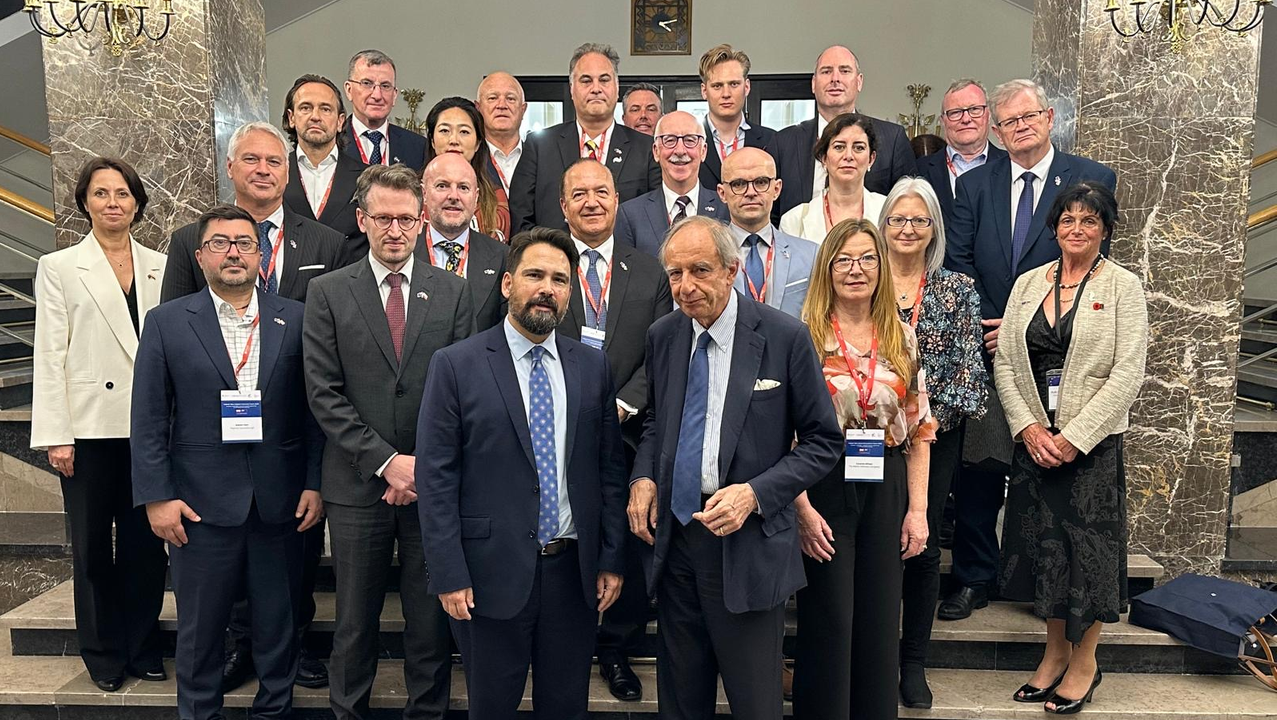New Zealand’s trade with Europe sits at $20 billion annually. The trade mission last month focussed on Romania, Hungary, Czech Republic, and Poland to connect with nations that economically have similar areas of focus.
In support of Science Alliance, Sam Bassett also sought to understand the challenges and opportunities of science, and in the first post about this trip he asked: Could investing in science across borders not just unlock cures for diseases, tackle environmental challenges, but also boost economies at the same time?
Now, having experienced the environment and talked with well connected people, he is able to answer this question.
When I was first invited to join a trade mission into Hungary, Czech Republic, Poland and Romania I admit I was as much interested by the opportunity to see their progression, as by the opportunities to develop contacts and trade. On both levels, I was deeply rewarded.
To witness their progression and meet these people has been an experience both humbling and uplifting. The people and the culture are foremost in my memory. There is a sense of pride with all of them. They have had a hard history in the 20th century and it is now clicking 35 years since they came out from the iron curtain. They are hugely different now and the change in each of the four is quite dramatic.
A key area of investment has been in education resulting in a well-educated and intellectually curious population. This strong educational foundation is now fuelling science discovery and innovation and shaping their role in the new global economy.
Exploring this on behalf of Science Alliance I became interested in these country’s progress in scientific research and innovation. All countries have remarkable legacies in all fields of science and a quick ‘Did you know…’ search reveals Vitamin-C discovered in Hungary, radioactivity in Poland, the jet-propelled aircraft in Romania, and the foundations of modern genetics in the Czech Republic.
These are countries that pioneered computers, molecular medicine, and nuclear science, and today lead in AI, robotics, cybersecurity, satellite technologies, the world’s most powerful laser systems, and breakthroughs in oncology, mRNA therapies, and neurology and cardiology.
Horizon Europe was originally established as a funding resource for European research teams but has been widened to include other countries. They recognise the value of collaborating with minds that together can solve the problems that face us all.
Science knows no borders. Language is no longer a barrier, and distance is irrelevant in an age of global communication. The opportunity for knowledge sharing is now boundless. We are living in a time where science and technology are converging to create solutions with the power to benefit us all.
As a father, I think about the future of my family and recognise the vital role science will continue to play in improving life for our generation and those to come. With a background in finance, I also see the powerful potential when science and finance work hand in hand, delivering improvements for people and profit for investors.
These are countries we can admire for their bold investments in education and science, and their economies and cultures have flourished as a result. We now have the opportunity not only to collaborate with them, but to learn from their example, reconsidering how we approach, support, and invest in science and innovation.
